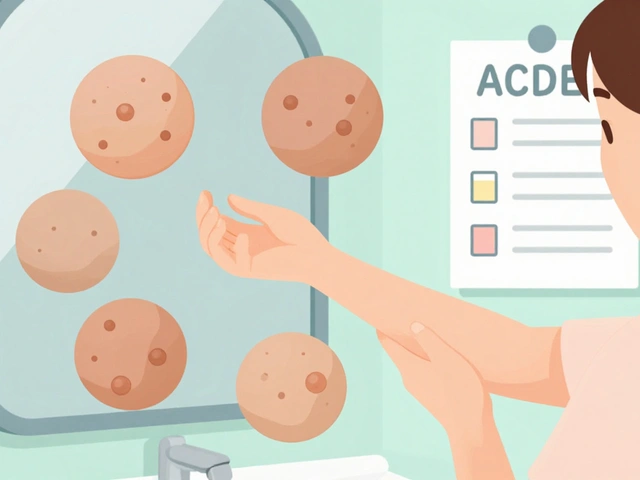
Understanding Hypertension and Its Effects on the Brain
Hypertension, also known as high blood pressure, is a common condition that affects millions of people worldwide. It is a major risk factor for heart disease, stroke, and kidney failure. But did you know that hypertension can also have a significant impact on cognitive function? In this article, we will explore the connection between high blood pressure and cognitive decline, and discuss ways to protect your brain health.
How Hypertension Damages the Brain
High blood pressure can damage the small blood vessels in the brain, leading to reduced blood flow and oxygen supply to brain cells. Over time, this can cause the brain to shrink in size and lose some of its vital functions. Additionally, hypertension can cause the blood-brain barrier, which protects the brain from harmful substances, to become more permeable. This can lead to inflammation, oxidative stress, and the accumulation of toxic proteins in the brain, all of which contribute to cognitive decline.
Memory Loss and Hypertension
One of the most common cognitive impairments associated with hypertension is memory loss. This is because the brain regions responsible for memory, such as the hippocampus, are particularly vulnerable to the effects of high blood pressure. Studies have shown that people with hypertension perform worse on memory tasks compared to those with normal blood pressure. Moreover, the degree of memory impairment is often directly related to the severity and duration of the hypertension.
Attention and Executive Function
Aside from memory loss, hypertension can also affect other cognitive domains, such as attention and executive function. Executive function refers to the higher-order cognitive processes that allow us to plan, organize, and make decisions. People with hypertension may have difficulty concentrating, multitasking, and problem-solving. They may also exhibit slower processing speed, which can make everyday tasks more challenging.
The Connection Between Hypertension and Dementia
Hypertension is a well-established risk factor for both Alzheimer's disease and vascular dementia, two of the most common forms of dementia. In fact, some studies suggest that people with high blood pressure are twice as likely to develop dementia compared to those with normal blood pressure. This is because hypertension can contribute to the formation of amyloid plaques, a hallmark of Alzheimer's disease, as well as the development of small strokes, which can lead to vascular dementia.
Reducing Hypertension to Protect Cognitive Function
Given the strong link between hypertension and cognitive decline, it's crucial to take steps to lower your blood pressure and maintain it within a healthy range. Lifestyle changes such as eating a balanced diet, exercising regularly, maintaining a healthy weight, and limiting alcohol consumption can help lower blood pressure naturally. Additionally, medications prescribed by your healthcare provider can also help manage hypertension effectively.
The Importance of Early Detection and Treatment
Early detection and treatment of hypertension are critical for protecting cognitive function. Research has shown that individuals who receive treatment for their high blood pressure in midlife have a lower risk of developing dementia later in life compared to those who remain untreated. Therefore, regular check-ups and blood pressure monitoring are essential for ensuring that hypertension is managed effectively and promptly.
Staying Mentally Sharp: Tips for Brain Health
In addition to managing hypertension, adopting a brain-healthy lifestyle can help preserve cognitive function as we age. Some tips for maintaining brain health include staying mentally active through learning new skills, engaging in cognitively stimulating activities such as puzzles and games, staying socially connected, getting adequate sleep, and managing stress levels. By taking care of both your body and mind, you can reduce your risk of cognitive decline and enjoy a higher quality of life as you age.
5 Comments
Manvika Gupta
May 20, 2023 AT 17:02 PM
my mom got diagnosed last year and she’s 58. she started walking 30 min every day and cut out the salt. her bp is way better now and she says her focus is clearer. i’m so glad she listened to the doc 😊
Hobert Finn Bodfish
May 21, 2023 AT 15:44 PM
This is basic med school stuff. Hypertension causes microvascular damage → white matter lesions → executive dysfunction. Anyone who doesn't know this is living under a rock. Also, if you're not on an ACE inhibitor by 45 and have BP >130/85, you're doing it wrong. 🤦♂️
Andrea Galetto
May 22, 2023 AT 02:26 AM
The real issue isn't hypertension it's the societal failure to prioritize prevention. People eat processed garbage, sit all day, and then act shocked when their brain turns to mush. No one wants to hear this but your lifestyle is the diagnosis
Daniel Rogers
May 22, 2023 AT 14:01 PM
You got this 💪 Seriously, even small changes add up. Swap soda for water, take the stairs, laugh more. Your brain will thank you in 20 years. And yes, meds help too - no shame in that. We're all in this together 🌱🧠






Chloe McDonald
May 20, 2023 AT 10:39 AM
I never realized how much high blood pressure could mess with your brain. My grandma had it bad and started forgetting names by 70. Scary stuff.
Love that they mentioned sleep and stress too. Those are easy to ignore but so important.